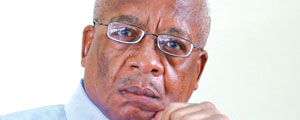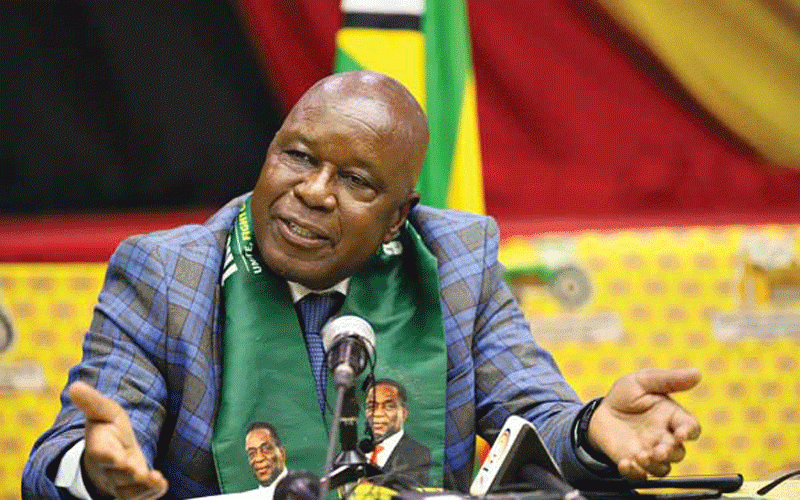
Professor Gordon Lloyd Chavunduka, who died last week at the age of 81, did not do too badly in trying to marry tradition and modernity and making great sense of that. His outlook or take on life was holistic.
Opinion by Conway Tutani
At the then University of Rhodesia (now University of Zimbabwe) in the 1970s – where I had the privilege and pleasure to be his student and also in his tutorial class – his sociology lectures were clear and crisp. The lecture would take only 30 minutes instead of the allotted hour, but nothing would be missed. That’s how lucid and concise he was. He had complete mastery of the subject. One of the most enlightening or revealing moments I had from him was when he introduced the subject of “Deviance” (action that violates social norms or rules). He began by a simple but not-so-obvious example of what people can regard as deviant. He said by merely looking different — such as being grossly overweight — one could be deemed deviant over things beyond their control. It rang a bell as to why albinos used to be killed at birth in pre-colonial African society. I really began to see the danger of herd mentality or mob psychology. This really broadened my mind. What is regarded as “deviant” is highly variable across societies and times. Now it’s the in-thing to grow dreadlocks whereas previously this was associated with dagga-smoking “anarchic” Rastafarians and, nearer home, with homeless, insane people who didn’t wash and comb their hair, resulting in such appearance. Now it’s become a statement of fashion.
Unlike many public figures, especially elected ones, Chavunduka didn’t hog the limelight nor was he petty. Mild-mannered and gentlemanly, he did not wear his achievements on his sleeve. He did not feed on people’s attention and approval — like one local businessman who has recently taken to boasting thus: “I am Dr Phillip Chiyangwa, doctor of money. Do you know I am a doctor? . . . I am here to empower everyone with my money, I am Doctor Money . . .” after reportedly being conferred an honorary PhD by some obscure university for his purported business acumen. Chavunduka didn’t have to be awarded honorary degrees or buy mail-order degrees — akaona musuwo weuniversity (he attended university). He also never got himself too offended by others in a political environment in which lies and insults have become routine.
He didn’t expect everyone to fall in line and agree with him, and didn’t get worked up or agitated — like, for example, Jonathan Moyo and Tafataona Mahoso — when things didn’t go his way. He did not treat people as if they didn’t have minds of their own. Never flashy, aloof or arrogant, he got people to see and listen in a different light. As a result, he built a lot of friendships and earned admiration. To me, he was one of the most least prejudiced people you could ever meet.
This could have possibly arisen from his high sense of sociological perspective. Chavunduka “thought sociologically”; that is, he had a sociological perspective or sociological imagination. The sociological imagination can explain why a life is lived the way it is and all events, decisions, successes, and failures that have occurred.
Furthermore, it enables us to understand the relationship between private troubles and public issues. “Only by understanding how society affects us as individuals can we ever hope to change society effectively.” (Analysis of the Sociological Imagination and its Use in Sociology, May 2003).
Chavunduka put this understanding into practical use. If you were to list the issues he was involved in, they stretch from academia, traditional medicine, labour issues to politics. He was Vice-Chancellor of the University of Zimbabwe from 1992 to 1996, where he actively pursued affirmative action for female students. He was president of the Zimbabwe National Traditional Healers’ Association, shifting prejudices by giving African traditional medicine acceptance and respectability, and initiating enabling legislation. He was chairman of the MDC-T Guardian Council, a think-thank of wise, old heads set up to give guidance to the party. A dictatorship often quells the right of free expression and association. Where people are not free to voice their opinions or form alliances for peaceful protest, history has shown that their frustration culminates in violent protest and revolution.
- Chamisa under fire over US$120K donation
- Mavhunga puts DeMbare into Chibuku quarterfinals
- Pension funds bet on Cabora Bassa oilfields
- Councils defy govt fire tender directive
Keep Reading
This, I believe, is what Chavunduka was trying to avoid throughout his political life — from Rhodesia to Zimbabwe. As a sociologist, he was aware that no one person, no one group, can have all the wisdom needed to make sound, intelligent decisions.
“When information that is critical to an informed understanding of our entire world is deliberately falsified, a major crime is committed against our entire society because it reduces the chances of the survival of our society,” wrote a social scientist. Once the country goes over the cliff, there is no return ticket.
Chavunduka will forever be remembered for his brilliant accomplishments, his compassion and — above all —his humanity. In him, I saw more of the humanist than the politician.
Rest in peace, Professor.











